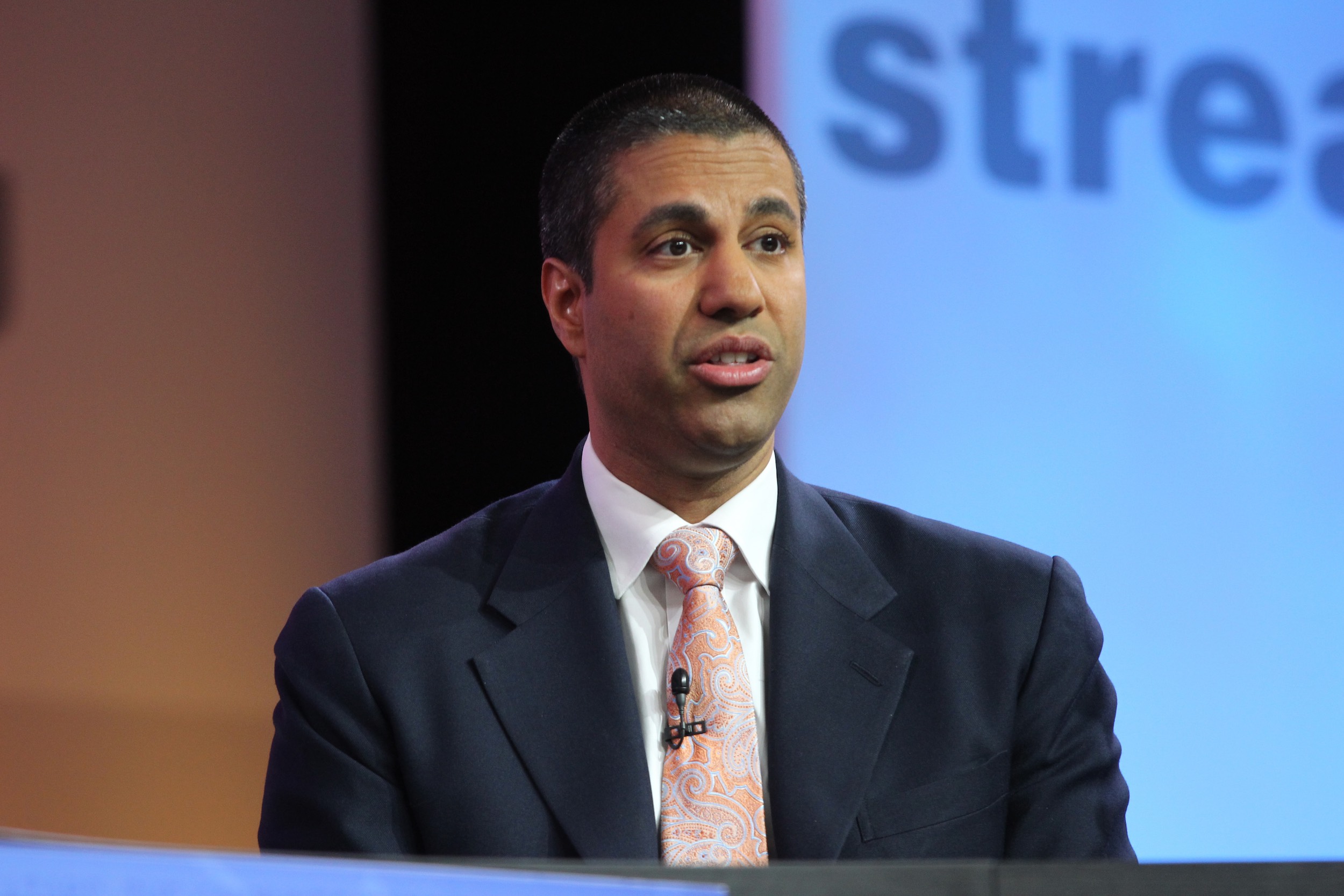FCC's Pai Recommends Approving T-Mobile-Sprint Merger

The smarter way to stay on top of broadcasting and cable industry. Sign up below
You are now subscribed
Your newsletter sign-up was successful
The T-Mobile-Sprint merger got a huge boost Monday when FCC chair Ajit Pai announced the companies had made a commitments to deploy rural broadband and advance 5G next gen wireless service, and face up to $2.4 billion per year in penalties per year if they don't do that and other things they have promised.
They will also spin off prepaid wireless service Boost Mobile to address competition concerns.
Related: T-Mobile's Legere Says Sprint Deal Isn't in Trouble
That was apparently enough to get the FCC chairman on board, and to secure his vote for approval of the proposed merger. He will circulate a draft order approving the deal and with the conditions laid out in the next several weeks. Fellow Republican Brendan Carr announced his support soon after the chairman, which leaves only one more vote for passage, likely that of Republican Michael O'Rielly.
The White House has made winning the race to 5G and advancing rural broadband for high tech agriculture avowed priorities.
In lengthy and unusual statement given that the chairman usually does not comment on the mergers before the commission, the chairman concluded: “In light of the significant commitments made by T-Mobile and Sprint as well as the facts in the record to date, I believe that this transaction is in the public interest and intend to recommend to my colleagues that the FCC approve it. This is a unique opportunity to speed up the deployment of 5G throughout the United States and bring much faster mobile broadband to rural Americans. We should seize this opportunity.”
Related: Groups Mass Against T-Mobile-Sprint
The smarter way to stay on top of broadcasting and cable industry. Sign up below
He pointed out that the companies have committed to "deploying a 5G network that would cover 97% of our nation’s population within three years of the closing of the merger and 99% of Americans within six years. This 5G network would also reach deep into rural areas, with 85% of rural Americans covered within three years and 90% covered within six years. Additionally, T-Mobile and Sprint have guaranteed that 90% of Americans would have access to mobile broadband service at speeds of at least 100 Mbps and 99% would have access to speeds of at least 50 Mbps."
That includes covering "at least two-thirds of our nation’s rural population with high-speed, mid-band 5G."
T-Mobile has been saying that without the deal the company would not be able to build out that national 5G network as quickly.
Pai also said that the combined company has "offered specific commitments regarding the rollout of an in-home broadband product, including to rural households."
The companies have also volunteered, or agreed, to divest Boost Mobile. That is the sort of move that likely to boost its chances at the Justice Department, whose antitrust chief says he generally favors divestitures over conditions, though the deal has plenty of the latter apparently.
The FCC will not require any spectrum divestitures.
The deal still has to get two other votes at the commission, though that is likely to come from the other two Republicans, and Justice needs to sign off on its antitrust review, but it is unlikely the chairman would have announced his intention without believing he had the votes and the FCC and the commission generally coordinates its review with that of Justice.
June 15 will mark a year since the FCC opened its review of the deal. It has an informal 180-day shot clock on merger reviews, but it is not a hard deadline and has been honored as much in the breach as the observance.
T-Mobile CEO John Legere said last month that a Wall Street Journal report that the Sprint merger was in trouble is off base.
But that report had been that Justice was having issues with the deal as structured. It could have been restructured since then in response to any concerns on that side of the deal-vetting.
According to FCC officials speaking on background, the companies have promised to structure the Boost divestiture so that Boost has the incentive and ability to compete with T-Mobile-Sprint in the low-cost market, and vice versa, notwithstanding the wholesale agreement between the new company and Boost.
The Wireless Bureau will have the authority to approve or reject that wholesale agreement.
The companies have also pledged not to use the deal to withdraw from the Sprint-Altice MVNO, according to the officials.
No commitments expressly deal with jobs, an issue that has been very important with unions, though FCC officials said they expect those to come along with the buildout commitments.
The companies re-committed Monday (May 20) not to raise prices for three years.
Asked how the FCC is going to verify the 5G high-speed buildouts, officials said just turning in maps was not good enough. Instead there will be T-Mobile-funded "drive" tests" that could be conducted by T-Mobile staff, but will have to be overseen by a third party.
Contributing editor John Eggerton has been an editor and/or writer on media regulation, legislation and policy for over four decades, including covering the FCC, FTC, Congress, the major media trade associations, and the federal courts. In addition to Multichannel News and Broadcasting + Cable, his work has appeared in Radio World, TV Technology, TV Fax, This Week in Consumer Electronics, Variety and the Encyclopedia Britannica.

